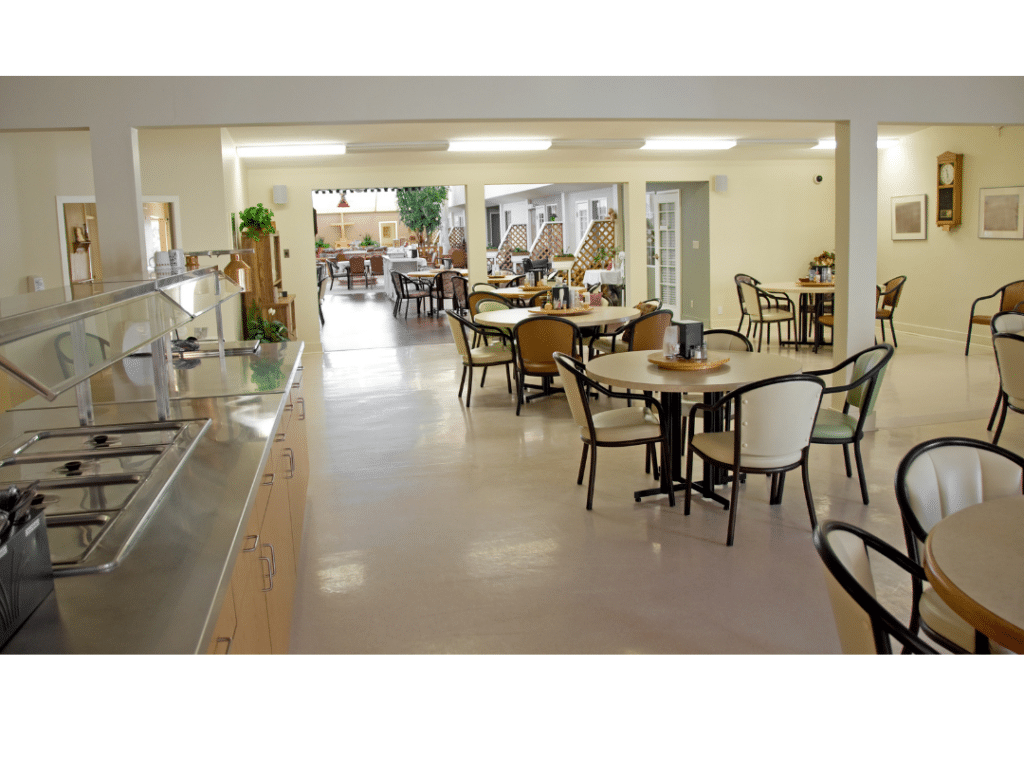Comparing Residential Care Vs Assisted Living for Seniors
Choosing between residential care and assisted living for seniors can feel like maneuvering through a maze, with each path leading to different levels of support and community. At The Oaks at Nipomo, you might find that one option offers a cozy, intimate environment while the other promotes a vibrant social scene. Understanding these differences is essential, as they can greatly impact your loved one’s quality of life. What factors should you consider to guarantee the best fit? Exploring these aspects at The Oaks at Nipomo can uncover insights that might surprise you.
Residential Care vs Assisted Living
When deciding between residential care and assisted living for seniors, it’s crucial to understand the fundamental differences that can impact quality of life.
Assisted living facilities cater to seniors who need help with daily activities but still seek a degree of independence. They typically offer personal care services, such as bathing, medication management, and meal preparation, in a communal setting. These facilities range from 40 to 300 beds and provide 24/7 staff support, ensuring safety and assistance at all times.
On the other hand, residential care homes are smaller, often accommodating 10 to 15 residents. This environment fosters a more intimate atmosphere, allowing for personalized attention and deeper connections with caregivers. Many of these homes are converted residences, offering a homelike experience that can be comforting for seniors.
While both options provide crucial services, the choice between them often comes down to the level of care needed and the preference for social interaction. Additionally, social connection in these environments plays a significant role in enhancing residents’ overall well-being.
Understanding these differences can help you make an informed decision that prioritizes the well-being and happiness of your loved one.

Difference between Assisted Living and Nursing Home
Many families find themselves wondering about the differences between assisted living and nursing homes as they seek the best care options for their loved ones.
Here are three key distinctions to take into account:
- Level of Care: Assisted living facilities provide support with daily activities like bathing and medication management, while nursing homes offer more thorough medical care for individuals with serious health issues.
- Environment: Assisted living often resembles a community with apartments and social activities, whereas nursing homes tend to have a more clinical, institutional feel.
- Staffing: In assisted living, staff-to-resident ratios are typically lower, allowing for more personalized care. Nursing homes usually have more medical professionals available around the clock to handle complex needs.
Understanding these differences can help you make informed decisions. Additionally, comprehensive elderly services are often available in both settings to cater to residents’ needs.
If your loved one values independence and requires minimal assistance, assisted living may be a better fit. Conversely, if they need substantial medical supervision and care, a nursing home could be the right choice.
Each option has its merits, and assessing your loved one’s specific needs will guide you toward the best solution.
5 levels of care in assisted living
Levels of care in assisted living are crucial for guaranteeing that seniors receive the appropriate support tailored to their individual needs. Understanding these levels helps you make informed decisions about the services that best fit the seniors in your life.
Here’s a breakdown of typical levels of care in assisted living:
| Care Level | Description | Services Included |
| Independent Living | Minimal assistance needed | Meal preparation, housekeeping |
| Assisted Living | Help with daily activities needed | Bathing, medication management |
| Memory Care | Specialized care for dementia and Alzheimer’s | 24/7 supervision, cognitive therapies |
| Skilled Nursing | extensive medical care | Nursing services, rehabilitation |
| Respite Care | Short-term relief for caregivers | Temporary housing, personal care |
Each level provides specific services to meet varying needs, whether that’s assistance with daily tasks or more intensive medical support. By recognizing these levels, you can guarantee that seniors receive the right amount of care, allowing them to maintain their independence while receiving the help they need. Your thoughtful consideration plays a crucial role in enhancing their quality of life. Additionally, the needs-based assessment ensures that care plans are tailored to the specific needs of residents, promoting their overall well-being.
In choosing between residential care and assisted living, it’s crucial to evaluate your unique needs and preferences. Notably, nearly 70% of seniors will require some form of long-term care in their lifetime, highlighting the importance of making an informed decision. Residential care offers a close-knit environment with personalized attention, while assisted living fosters independence and social interaction. At The Oaks at Nipomo, we are dedicated to helping you navigate these options. Ultimately, the right choice can greatly enhance your quality of life, ensuring you receive the support you deserve. For more information, please call us at (805) 723-5206.
How Do The Costs Of Moving Into A Quality Senior Care Community Compare With The Costs Of Staying At Home?Compare The Costs of Senior Living vs Staying at Home
Questions About Residential Care and Assisted Living
Q: What is an example of residential care?
A: Residential care includes settings like group homes or facilities where individuals receive personal support, such as help with daily activities (e.g., bathing, dressing, and meals). These environments provide a home-like atmosphere with 24/7 supervision for those who need assistance but not intensive medical care.
Q: What is the difference between a personal care home and assisted living?
A: Personal care homes generally focus on providing basic assistance with daily activities, often in a smaller, more intimate setting. Assisted living facilities typically offer a broader range of services, including social activities, medication management, and more extensive support for residents who are still relatively independent.
Q: What is another name for a residential care facility?
A: Residential care facilities are also known as group homes, adult care homes, or board and care homes. These terms vary by region but describe similar services for individuals needing assistance in a residential setting.
Q: What is the difference between a residential care home and a care home?
A: A “residential care home” typically refers to smaller facilities that provide personal care in a home-like environment. In contrast, “care homes” is a broader term that can include residential and nursing homes that offer medical services.
Q: When should someone move from assisted living to a nursing home?
A: A move from assisted living to a nursing home is often needed when an individual requires round-the-clock medical care or rehabilitation services that assisted living cannot provide. This transition is common for those with significant mobility issues, advanced dementia, or chronic medical conditions requiring skilled nursing care.
Q: What is a residential care facility?
A: A residential care facility is a housing option for individuals who need assistance with daily activities but do not require intensive medical care. These facilities provide personal care, meals, social activities, and 24-hour supervision in a community setting.
Q: What is the difference between assisted living and a nursing home?
A: Assisted living focuses on helping residents maintain independence by providing support with daily tasks in a community setting, often with private apartments. On the other hand, nursing homes offer comprehensive medical care and supervision for individuals with more complex health needs.
Q: Who qualifies for assisted living?
A: Individuals who qualify for assisted living are typically older adults or people with disabilities who need help with daily activities such as bathing, dressing, or managing medications but do not require extensive medical care. Assisted living is a great option for those who value independence but benefit from support and social engagement.








